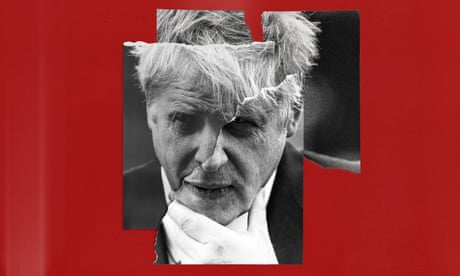- by foxnews
- 05 Apr 2025
His toxic spell is broken: Boris Johnson trips over his own lies | Jonathan Freedland
His toxic spell is broken: Boris Johnson trips over his own lies | Jonathan Freedland
- by theguardian
- 08 Jul 2022
- in news

Lies and a brazen contempt for the rules powered his rise; lies and a brazen contempt for the rules brought his fall. Which means the political odyssey of Boris Johnson has a curious symmetry. Except that what began as defects in the personality of one man ended as defects in his party and his government, inflicting great damage on the entire country.
The lies that proved his undoing are now all too familiar. The last, fatal lie was his claim that he had not been told directly of complaints of sexual misconduct committed by the former deputy chief whip Chris Pincher, a claim rapidly exposed as false in a rare intervention from a former permanent secretary at the Foreign Office, Simon McDonald. It turned out that Johnson had indeed been briefed about Pincher, and that once again Johnson had not told the truth.
Johnson had stood before the country in one of the darkest hours of the postwar era and promised that we were all in this together, that the lockdown regulations that kept loved ones from each other, even as they drew their last breath, applied to everyone including him.
Ordinarily, a reputation for serial deceit would close off the route to the top, or at least prove an impediment. Yet for Johnson it proved no obstacle at all. On the contrary, his route to No 10 was smoothed with lies. How come? What were the forces that propelled a man whose flaws were so clear and well documented into the most powerful job in the land?
At its most superficial, Johnson was lucky in his opponents. Leaders often emerge as chemical reactions to their predecessors: after Barack Obama, Donald Trump. Johnson was blessed to seek the Tory crown after the resignation of Theresa May.
For while Johnson scored minus 20, Corbyn stood at minus 44 (24% satisfied, 68% dissatisfied). As so often, Johnson had proved lucky in his opponent. In London, he had twice run against Ken Livingstone. In 2019, he found himself for a third time in just over a decade facing a far-left candidate on whom public opinion had soured. In all three cases, Johnson did not need to be especially popular to win.
Once installed in No 10, and thanks to a strategy devised by Dominic Cummings, Johnson deployed Brexit to engineer an election in which he would win his own mandate.
But a bogged-down Brexit, a charisma-free predecessor and unpopular Labour opponent were only the most visible forces at work in the rise of Boris Johnson. What also eased his ascent was a subtle but powerful shift.
But by the end of 2016, both men had repositioned themselves as the embodiment of nationalist populism, railing against liberal elites and promising to restore a vanished past, whether it was to Make America Great Again or to Take Back Control.
It might even have worked, for a while at any rate. But then came coronavirus. Populists have no answer to a pandemic, for it requires the very things Johnson and his ilk lack and despise: hard work, a forensic grasp of detail, the wisdom of experts, human empathy, a spirit of self-sacrifice and, above all, rules. Of course, he would not follow them. He never had. It had once been part of his appeal.
But that still gave him time to do some lasting damage. Not just a mishandling of the pandemic that meant that at one stage Britain had recorded the highest death toll in Europe and the greatest economic blow in the G7, but something less measurable.
In the spring of 2020, Britons were ready to follow their prime minister into a long period of collective self-discipline, even at the expense of hardship and emotional pain. They did it because they believed him when he said we would all be doing it, every last one of us. The Queen believed it, which is why she sat alone as she buried her husband of 73 years. But it was not true.
That will leave its own legacy, in distrust and cynicism that will endure long after Boris Johnson leaves Downing Street, his brief but toxic spell in the office he craved since childhood finally over.
- by foxnews
- descember 09, 2016
Excavation near site where Jesus was crucified and buried results in ancient discovery
Proof of ancient olive trees and grapevines, consistent with a Bible verse, has been found at the Church of the Holy Sepulchre in Jerusalem, an archaeologist confirms.
read more


